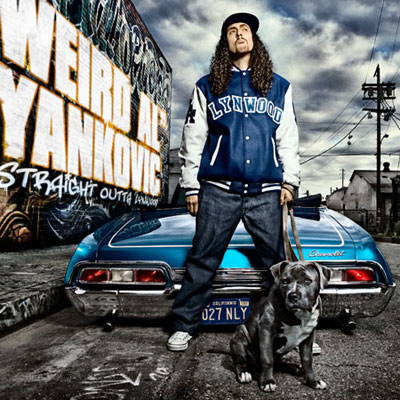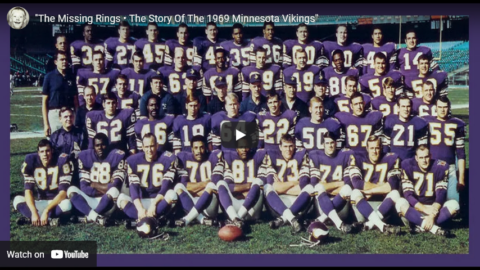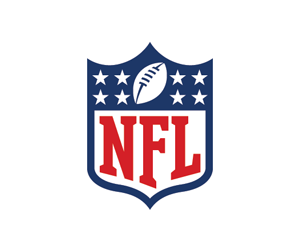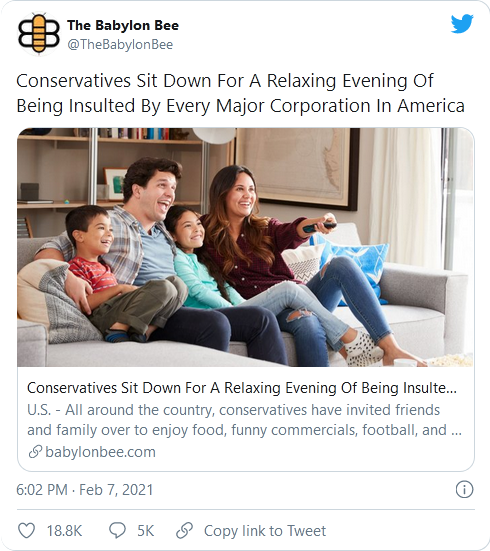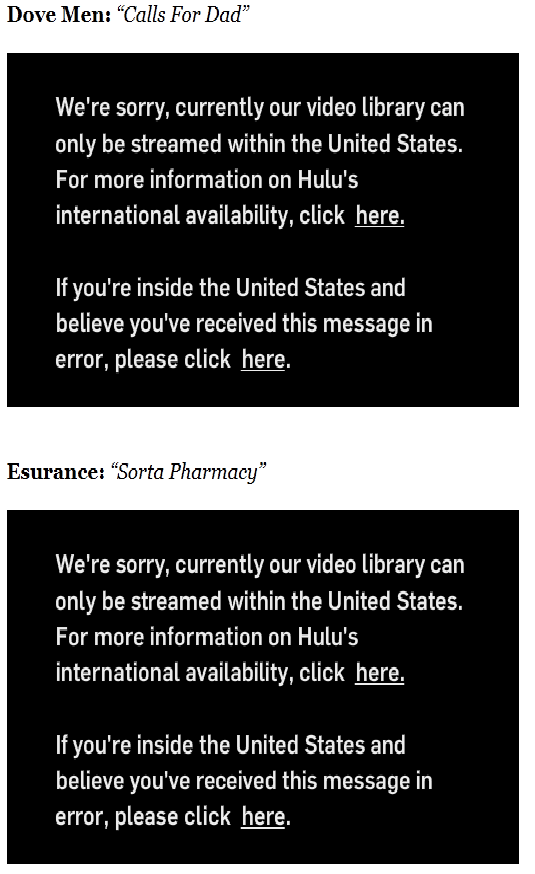Secret Base
Published 15 Aug 2023The Minnesota Vikings of the 1970s were among the greatest football teams ever assembled. Entering 1974, Bud Grant’s teams had reached two Super Bowls, but lost them both. The good times don’t last forever. It’s time to cash in.
Written and directed by Jon Bois
Written and produced by Alex Rubenstein
Rights specialist Lindley Sico
Secret Base executive producers Will Buikema and Jon BoisKnown goofs:
• At about the 42-minute mark, Jon says Fran Tarkenton held a 45-8-1 record as starter between 1973 and 1976. His record across these years was actually 43-10-1.
(more…)
August 28, 2023
The Last Chance | Dorktown
August 21, 2023
What the parades are for | Dorktown
Secret Base
Published 8 Aug 2023This is the second episode of our seven-part docuseries, The History Of The Minnesota Vikings.
For the Vikings, the 1970s were so full of comedy, drama, and doomed snowmobiling expeditions that we had to split this decade into two episodes. And we STILL had to leave stuff out! What a team.
(more…)
August 14, 2023
56 pounds of beer | Dorktown
Secret Base
Published 1 Aug 2023In the early years, the Minnesota Vikings were like many new franchises of the time: dysfunctional, bad at football, and often intoxicated. And then a former NBA champion came back home to Minnesota and changed the identity of this franchise forever.
This is the first episode of Dorktown’s seven-part docuseries, The History of the Minnesota Vikings.
(more…)
July 7, 2023
This would be a Super Bowl halftime show I’d absolutely watch
Christopher Gates makes the case for Weird Al Yankovic being the star of the next Super Bowl halftime show:
“Weird” Al has pretty much universal appeal
With most of the acts that could be selected for the Super Bowl halftime show, a sizeable portion of your potential audience isn’t going to like them. Whether it leans more towards rap/hip hop music or pop music or whatever the case may be, you’re going to have plenty of people that aren’t into it.
Since “Weird” Al’s work spans genres and time frames, you don’t have to worry about that. There’s almost universal appeal in having someone with this sort of talent perform on the biggest possible stage, because you could have a show that hits pretty much all of the different types of music that would appeal to anyone else.
Also, to put it bluntly: Nobody hates “Weird” Al. They might not be the biggest fans of his style of music, necessarily, but there’s nobody that really has an outright hatred or even a dislike for the guy. He’s apparently one of the nicest people in the entire entertainment industry, so he’s got that going for him … which is nice.
Think of the cameo potential
One of the best possible cases that you could make for something like this is the case for cameo appearances, which have become a bit of a thing at Super Bowl halftime shows in recent years. After all, “Weird” Al has been at this for four decades. Literally anyone that he’s parodied over the years that’s still with us is fair game for a potential cameo appearance during something like this.
All those years ago, “Weird” Al started out doing parodies of acts like Madonna and Huey Lewis and the News, and on his last studio album did send-ups of Imagine Dragons, Lorde, and Iggy Azalea. You don’t think you could sell some of those folks on the idea of sharing the biggest possible stage in the world with him for one night? I certainly think that you could. There’s really a lot of potential there, to be honest.
July 8, 2022
The Missing Rings • The Story Of The 1969 Minnesota Vikings
Randy Fast
Published 28 May 2016I know that this video has already been posted on YouTube, but for those of you that have never seen it, here’s a great documentary by NFL Films on the 1969 Minnesota Vikings season. I was only seven at the time, and professional football wasn’t quite yet on my radar, but for hardcore Vikings fans, the finale of this season must have been a pretty hard pill to swallow. Anyway, I hope YouTube/NFL Films allows me to keep this video posted, so until then…
February 11, 2021
Tom Brady’s Super Bowl success has outlasted many titans of corporate America
Despite the headline, this isn’t really about the NFL, Tom Brady or the S*per B*wl, it’s about a key factor in free market economies: creative destruction.
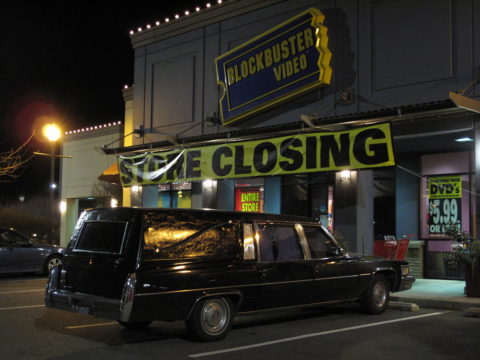
“Blockbuster store closing sale” by Consumerist Dot Com is licensed under CC BY 2.0
Consider some of the names that bought Super Bowl airtime during Brady’s first rodeo in January 2002: AOL, Blockbuster, Radio Shack, Circuit City, CompUSA, Sears, Yahoo, VoiceStream Wireless, and Gateway Computers.
The Titans of Yesterday
Notice a theme? That list features some companies we saw in Captain Marvel, the 2019 hit movie that nailed 90s nostalgia and reminded us how fast the world had changed. Like when Blockbuster Video stores were still a thing.
For those who may not recall, when Brady was winning his first Super Bowl, Blockbuster was approaching its peak. In 2004, it operated 9,094 stores and employed some 84,300 people. The company was pulling in $6 billion in revenue annually and looked invincible. Today, a single Blockbuster store remains open — in the world.
Remember RadioShack? Once upon a time, it seemed as if you could find one of their brick-and-mortar stores in every corner of the USA. Not anymore. In 2015, RadioShack filed for Chapter 11 bankruptcy, in large part because of those many store locations, which cannibalized revenues.
Sears, one of the historic giants of retail, managed to make it to 2018 before announcing its bankruptcy. Its stores continue to close so fast, it’s hard to tell how many remain in operation. (The best guess is about 60.)
It’s sometimes difficult to remember that the titans of industry aren’t always the same companies from year to year, and the sector-dominating company today might well be begging for a bailout (or demanding protection from uppity new competitors) only a few years down the way.
Some might see the collapse of Blockbuster, Sears and company as a sign of something terribly wrong with our economic system. After all, Blockbuster alone paid rent at tens of thousands of properties and employed tens of thousands of workers. Sears was the largest American retailer (by far) for decades.
Watching the companies we once shopped at flounder and fail can be surprising, jarring even. But a closer look shows this cycle is not unusual and is actually the sign of a healthy market economy, not a dysfunctional one. What may seem like pure destruction actually clears the way for economic innovation and renewal. “Creative destruction” is how the economist Joseph Schumpeter (1880-1950) characterized business failure in a free market.
As economist Mark Perry points out, companies on top have a very hard time staying on top. Perry, a scholar at the American Enterprise institute and a professor of economics at the University of Michigan’s Flint campus, compared the 1955 Fortune 500 companies to the 2019 Fortune 500. He found that just 52 were still on the list six decades later.
I spent most of my working career in the software business, and many of the companies I’ve worked for over the years aren’t in business any more (my first job out of school was with Northern Telecom … remember them?). Software is a particularly fast-cycling industry, but it’s true of the economy as a whole at a slightly more sedate pace.
February 9, 2021
Tampa Bay quarterback Tom Brady – “What’s not to hate?”
I did watch the S*per B*wl on Sunday, although as the Canadian broadcast carefully replaces almost all of the expensive, creative, one-off ads with exactly the same ads the network showed all through the rest of the season, I watched it on my computer, and kept my mute button handy to silence the roughly 2/3rds of the broadcast that wasn’t actually football-related. (Although I’ve read many people commenting that the “special” ads aren’t as good as they used to be, I watch so little TV that I’m hardly qualified to judge personally.) In Monday’s NP Platformed newsletter, Colby Cosh used the old “there’s two kinds of people” device to talk about Tom Brady:
You can easily have an opinion about Brady, and you probably do, even if you’ve never watched a whole football game. But I have no way of predicting what that opinion is. Do you see him as a cheerful, intelligent family man who has transcended his natural limitations through hard work and study? Or is he just the jammiest SOB who ever lived? There was definitely something cruel in watching the immobile Brady dismantle the Chiefs of Patrick Mahomes, a passer equipped with physical gifts whose possibility was inconceivable before he broke into the league.
That’s probably part of how Brady has driven such a fault into North American bedrock. If there were a stat representing handsomeness-to-physical-impressiveness ratio, he would dominate the NFL. When you see photos of young Brady, who famously dropped to the sixth round of the draft, you no longer wonder how he dropped so far but why he was taken at all. Did the scouts fall in love, as they are known to do, with the “good face”?
Ancient Brady is young Brady with less mobility and accuracy. Mostly, like a relief pitcher with nothing but a fastball, he just darts the ball very efficiently at nearby targets. (Trading New England’s targets for Tampa Bay’s was, obviously, shrewd to the point of genius.) He is becoming as specialized, as optimized for one function, as a punter. But in his case the function seems to be “winning Super Bowls,” and we can’t attribute one iota of that to innate gifts denied to ordinary mortals. What’s not to hate?
Speaking of the ads, I do think the Babylon Bee got it exactly right here:
As a comment at Ace of Spades H.Q. related, the S*per B*wl has lost a lot of its cultural capital over the last few years:
49 — I work at a somewhat woke company. While talking about some projects we were working on the new guy asked me “hey why isn’t anyone talking about the superbowl?” and I remembered that even last year everyone was talking about the superbowl none stop the monday after.
Well you’ve finally done it lefties you’ve killed the NFL.
Posted by: 18-1
I tuned out the halftime show, even though the performer was kinda-sorta a local boy (born in Toronto), and I was a bit nonplussed with the visuals (I had the whole thing muted, natch). James Lileks found the show to be oddly reminiscent of 70’s SciFi movies:
The halftime show had a strange 70s sci-fi aesthetic; for some reason I kept thinking of The Black Hole and Logan’s Run. The most interesting part was picking out the buildings in the New York skyline arrayed in neon. Ah, it’s the AT&T Building, Philip Johnson’s famous po-mo Chippendale tower! And that would be the Met Life tower, which is actually the base for a much-larger tower unbuilt after the Crash of ’29. Hey, everyone, let’s pause this elaborate routine and destroy its momentum so I can wax pedantic!
Then there were all those dancers in masks, looking like victims of surgery in an old movie where a gangster got plastic surgery. A way of incorporating the pandemic zeitgeist, right? Last year: EMPOWERMENT AND SEX AND SEX EMPOWERMENT! This year: faceless people moving in mass to choreographed steps, then dissolving into random panic. There was something wrong about it, like some dank gas blown up through a fissure, filling balloons that looked like the humans who populate the shadows of a nightmare.
Previous years, the Super Bowl event was pure excess — mad, crass, exuberant, American overdrive, American overkill, a mix of skill and brute force. Something about this one felt desperate and shellshocked. I suppose I’m reading too much into it. But I don’t think we need fever dreams and worried-looking buskers in empty fields, at this point. It would be nice just to have some Clydesdales again.
I saw on another site (sorry, forgotten where I noticed it) that the bandages were an in-joke for The Weeknd’s fans, who’d been teased with several social media posts about him recovering from some sort of mysterious plastic surgery procedure leading up to the performance.
February 7, 2017
I pity the Atlanta fans, but they’re reliving the Vikings fans’ emotions from the 1998 NFC Championship
 For the record, I disagree with this take from the Minneapolis Star Tribune: I hated Atlanta for about two seasons (at most) after the demoralizing 1998 NFC Championship game outcome. (However, I still hate the “Saints”…)
For the record, I disagree with this take from the Minneapolis Star Tribune: I hated Atlanta for about two seasons (at most) after the demoralizing 1998 NFC Championship game outcome. (However, I still hate the “Saints”…)
The Atlanta Falcons, leading by a touchdown (and two-point conversion) 28-20 in Sunday’s Super Bowl, reached the New England 22-yard-line with less than 5 minutes to play after a remarkable catch by Julio Jones along the sidelines. At that point, all Atlanta *probably had to do, at the very worst, was run a few plays that didn’t lose yardage, attempt a reasonable field goal using a pretty much automatic kicker, and watch the time melt away while New England pushed uphill in desperation against a two-score deficit. If that set-up sounds familiar, dear Vikings fans, it should. Eighteen years ago in the NFC title game, the Vikings led these very same Falcons by almost exactly the same score (27-20) and pushed into Atlanta territory in the closing minutes *probably needing just a field goal from a very accurate kicker to salt the game away. (*Probably in both cases because you never know, but still). And, of course, we know what happened in next in both cases. Last night, Atlanta ran a series of plays that pushed the ball backwards — a sack and a penalty being the most damaging — and got driven out of field goal range. Instead of a Matt Bryant try — he missed just three field goals all year, and only one from inside 50 yards — the Falcons punted. New England predictably took that gift, marched down the field and tied the game. The Patriots then won in overtime. In the NFC title game following the 1998 season, Gary Anderson — who hadn’t missed a field goal all season, a fact that is seared into our brains and adds to the pain — missed his try wide left. Atlanta used that gift to march down the field and predictably tie the game. The Falcons then won in overtime. Vikings fans who secretly (or openly) have been wishing for some sort of revenge for that moment 18 years ago found it Sunday, albeit courtesy of a Patriots team that plenty of fans love to hate.
The Daily Norseman‘s Ted Glover offers words of comfort to ailing Falcons fans:
Not a lot of fanbases could mentally process what happened to the Falcons and come out sane on the other end. Vikings fans have been doing it since the 1960’s. And we’re here to help
Dear Falcons Fans,
Hi. I’m kind of at a loss for words for you guys, but I want you guys to know that you’re not alone. As Vikings fans, we’ve been there. Yes, every year one team loses the Super Bowl, and it sucks, but rarely is a loss this brutal, a collapse this complete; a disbelief this consuming that leaves you in a stupor. And right now it’s a feeling you don’t think you’ll ever get over. You’ve probably even considered cheering for another team after last night.
that’s just reactionary and stupid. You’re a Falcons fan, and you don’t change fandom because of one game. Even if that game was last night.
They say time heals all wounds. ‘They’ are wrong. Some things you will not ever get over, and this will be one of those things. And that’s okay. But time does put distance between what happened yesterday, and as the years pass, time also adds perspective, and will give you an appreciation of what was one hell of a 2016 season.
Even though there’s no way you believe that right now. I understand. I am a fan of the Minnesota Vikings, and processing sports grief is what we do. If I may have just a couple minutes of your time, I think we can help.
Right now you’re feeling a mix of grief, anger, and disbelief, and it’s all justifiable. Virtually no one blows a 25 point lead late in the third quarter, and never on football’s biggest stage. Seriously, how rare was this feat?
Since 2001, 394 teams trailed by at least 25 points in first three Qs of game. Record: 3-391. On #Falcons collapse: https://t.co/lj30p1yTVi
— Kevin Seifert (@SeifertESPN) February 6, 2017
That’s just brutal. And in the Super Bowl. Reading that, you’re pissed off all over again, and you think back to one or two plays that, if they go the other way, you win the Super Bowl. After Julio Jones’ eleventy third ridiculous catch, all you had to do was run the ball three times, kick a FG, and it’s over.
But that didn’t happen. And the Falcons lost. And it might have been the worst loss in NFL history, certainly in Falcons history. I’m going to be brutally honest with you, and you might not want to hear this, but this game will gnaw at you for the rest of your life, and you’ll never truly get over it. Most games, yeah, eventually you move on and shrug your shoulders over.
But there are moments that you will never, ever truly put aside, and it doesn’t matter how many championships or big games your team eventually wins.
February 5, 2017
What a finely crafted Super Bowl ad can convey to different audiences
ESR linked to this Audi ad analysis saying, “The author may not have intended it this way, but this brilliant analysis could be part of the continuing “Why Trump won” series. Because eventually people get fed up with the contempt, and they push back.”
The Internet is in the proverbial tizzy about Audi’s “feminist” Super Bowl advertisement, in which the automaker comes out in favor of equal pay for women.
At first blush, the spot seems to be nothing but the usual corporate slacktivism, a feel-good fluff-vertorial making a “brave stand” in support of an issue that was decided long ago. I’m reminded of Joaquin Phoenix’s brilliant portrayal of Commodus in Gladiator, arriving in full armor as soon as he can do so without any risk. “Father, have I missed the battle?” Well, Audi, you’ve missed the war; if there’s a place in the United States where women are actually paid significantly less for doing the same job as men, it’s not evident from what I’m reading.
After watching the one-minute advertisement carefully, however, I understood feminism, or equal pay, is the last thing Audi wants you to take away from it. The message is far subtler, and more powerful, than the dull recitation of the pseudo-progressive catechism droning on in the background. This spot is visual — and as you’ll see below, you can’t understand it until you watch it and see what it’s really telling you.
Let me tell you up front: chances are you won’t like what Audi has to say.
January 24, 2017
“After a drab regular season and shoddy postseason, the NFL owes us a dramatic Super Bowl”
 Jim Souhan on the survivors of the AFC and NFC title games last weekend:
Jim Souhan on the survivors of the AFC and NFC title games last weekend:
The New England Patriots will play in the pre-Minneapolis Super Bowl. Tom Brady will try to become the first quarterback and Bill Belichick the first coach to win five Big Bowls.
The historic implication: With a victory over the Atlanta Falcons in two weeks in Houston, the Patriots can prove themselves one of the most dominant franchises in NFL history, if not all of sports.
They will face a franchise, Atlanta, which lost its only Super Bowl appearance, after upsetting the Vikings in 1998. The Patriots will be expected to win, perhaps will be expected to dominate, and yet the most interesting aspect of episodic dynasty is that they rarely dominate in the games that have made their reputation.
In six Super Bowls featuring Brady and Belichick, the Patriots never have won or lost by more than four points. Their composite score in those six games: 135-129.
In Atlanta, they will face an offense that has surrounded star receiver Julio Jones with worthy skill-position threats, which enabled quarterback Matt Ryan to have his best season, one in which he probably will be named the league MVP.
Belichick is known for taking away an opponents’ best weapon, but the Falcons’ dominance and health, combined with the Patriots’ Super Bowl history, hints that Super Bowl LI will be dramatic.
January 11, 2017
Colby Cosh boldly speaks out for a tiny minority of Canadians
For some reason, Colby Cosh has decided to drag out Rocinante to defend the rights of Canadian broadcasters to continue substituting the same fricking commercials they play all year during the Super Bowl:
I am here today to speak for the voiceless. To embolden the powerless. To raise awareness of the nation that lives unseen among us. I am referring, of course, to the invisible SimSub race: Canadian Super Bowl viewers who may actually prefer to have Canadian commercials broadcast on TV along with the football game.
For years we have remained in the shadows while opponents of “simultaneous substitution” dominated the conversation. The antis won a great victory in 2015 when our federal broadcast regulator, the CRTC, ruled that the Super Bowl was a unique TV event — one in which the expensive ads on the originating American broadcast were conceptually inseparable from the rest of the show. The Super Bowl ads, the CRTC said, ought not to be obscured by boring, artless commercials for Canadian tire stores and investment accounts.
The first Super Bowl broadcast to be non-simsubbed by CRTC fiat is scheduled for Feb. 5. But Bell Media, which bought the Super Bowl TV rights expecting to be able to show bad Canadian commercials to Canadian viewers, is joining up with other threatened interests to ask the Liberal government for an extreme, last-minute ministerial intervention in favour of another year of simsubbing. I am trying very hard not to describe this as a “Hail Mary pass”, but, well, there is a reason that metaphor is popular. And Hail Mary passes sometimes work.
I am kidding about the existence of a pro-simsub constituency — kind of. The CRTC made its decision partly because everyone agrees that the substituted advertising is always disappointing. It gave the commission the opportunity to do something populist that would reverse its own political reputation as a force-feeder of dismal CanCon, a drearifier of Canadian media.
February 3, 2016
Brace yourself for the predictable bullshit about “trafficked” prostitutes at the Super Bowl
In Reason, J.D. Tuccille explains why the usual media coverage of underage/trafficked/sex slave prostitutes being shipped in to cater to the depraved masses at the Super Bowl are so much hysterical nonsense:
When the Carolina Panthers and the Denver Broncos face off in San Francisco, experts warn us to expect Cam Newton and Peyton Manning to face burial under a tidal wave of human flesh — not the opposing team’s defensive line, as you might expect, but a writhing mass of sex slaves inundating the Super Bowl and the Bay Area.
Or so government officials and moral panic types would have it.
“Super Bowl host cities typically see a jump not just in tourists, but also in some crimes, including human trafficking and prostitution,” San Francisco’s KGO warned earlier this month on Human Trafficking Awareness Day, an annual event held every January 11.
“The good news is that we are continuing our efforts to fight human trafficking,” San Francisco District Attorney George Gascón said the same day. “The bad news is that the problem continues to increase.”
Gascón made his comments at a press conference deliberately tied to the big game, in anticipation of a wave of “trafficked” sex workers descending on the area.
That term – not “prostitution,” but “trafficking” — is a deliberate choice, selected to confuse people accustomed to the plain language established over the long history of the buying and selling of sexual services. The reason why is obvious. While the trade in sex was once frowned upon in itself, that’s no longer necessarily the case. A YouGov poll published this past September found Americans almost evenly divided, with 44 percent favoring legalization of prostitution, and 46 percent opposed. That’s up from 38 percent support for legalization in 2012. Amnesty International is among the organizations seeking to recognize people’s right to, in the organization’s words, “the full decriminalization of all aspects of consensual sex work.”
Opponents of commercial sex find themselves on the wrong side of shifting public opinion, so they pull a little rhetorical sleight of hand to get around that inconvenient word “consensual.” The implication of the “trafficking” terminology is that prostitutes are slaves — and they’re being hustled off to a major sporting event near you.
“Coercion is much rarer than ‘trafficking’ fetishists pretend it is,” insists Reason contributor and former call girl Maggie McNeill. “The term ‘trafficking’ is used to describe many different things along a broad spectrum running from absolutely coercive to absolutely not coercive, yet all of them are shoehorned into a lurid, melodramatic and highly-stereotyped narrative.”
February 5, 2015
How not to do media relations, NFL style
Unusually, in one of his last Tuesday Morning Quarterback columns of the season, Gregg Easterbrook actually talked more about football than usual:
In the run up to the Super Bowl, Marshawn Lynch received a huge amount of attention for insisting he just wanted to be left alone. If he’d actually just wanted to be left alone, he would have gone to the podium, offered a few sports platitudes — “the Patriots are a fine, fine football team” — and everyone would have left him alone. By making a great show of appearing in very dark glasses and ignoring questions, Lynch drew attention to himself. Which, one presumes, was what he wanted all along.
Many pro athletes don’t like having to face the media; Bill Belichick* doesn’t like to, Roger Goodell doesn’t like to. Their contracts require them to, because professional sports fundamentally are a form of entertainment, and fans find the media conferences entertaining. (Lord knows why.) Many players came from high school and college environments where the local sports media consisted mainly of homers: scandals were downplayed, the toughest question was, “How do you explain your brilliant success?” At the NFL level, players can be surprised to encounter sharp questions and hostile tones.
Not, certainly, because NFL games are more important than prep or college contests — NFL games are strictly entertainment, the outcomes are irrelevant to society. It’s just that at the NFL level, the sports reporters are at the top of their profession, too. They ask tough questions. Most players and coaches learn it’s the path of least resistance to play along, even when the questions veer into the absurd. Smart players and coaches discover that beginning a media conference by bantering with reporters about their careers rapidly turns them from attack dogs to lap dogs.
Then there are the players who would radiate hostility toward the sports media, such as Lynch. In 2009, he was suspended by the league for three games. Lynch seemed to expect sports reporters would act like team publicists and change the subject; instead he got abrasive questions. Since then, including last week at Super Bowl media events, he has accused the sports media of printing lies about him: “You all can go make up whatever you’re going to make up.” I’d venture a guess Lynch actually does not know what the sports media is saying about him because he doesn’t read the newspaper. He may prefer to believe himself the victim of some vast sports-media conspiracy.
The odd thing is that Lynch has a sense of humor, as he displayed in his Skittles parody. If he’d only show that humor at a media conference, the ice would melt. Instead he says things like this from last week, when he was supposed to take questions: “I come to you all’s event, you shove cameras and microphones down my throat. I ain’t got nothing for you all.” Reporters and spectators don’t get angry at Lynch when he expects them to attend games: for him to get angry when he’s expected to fulfill a contractual obligation involving cameras and microphones shows bad manners. At media conferences Lynch acts like a spoiled brat, which reflects poorly on him and his team.
When Thurman Thomas couldn’t find his helmet at a Super Bowl, then the Bills lost, for a while he was angry at the media because reporters kept bringing this up. One day he walked into a media conference with a basket of miniature helmets that he handed out to reporters, and told a couple jokes about himself. For the rest of his career, Thomas had the sports media eating out of his hand: When it was time to cast Hall of Fame votes, Thomas got a landslide of votes. Somebody in the Seahawks’ organization should tell this story to Lynch.
February 2, 2015
Super Bowl commercials Canadians didn’t get to see
I may have missed a few, as I didn’t get to start watching the game until near the end of the first quarter, but of the ones that Forbes included in their round-up, I recognize only the Doritos, Coca-Cola (ugh!) and #LikeAGirl ads. We certainly got more than our fair share of Ford F-150, Nissan, and The Keg ads, however. I’d show more, but a surprising number of the ads now show warnings similar to this
I’m sure they’ll eventually clear the border, but part of the point of the advertisers paying the big bucks for the Super Bowl timeslot is the immediacy.

